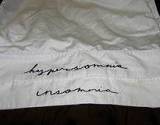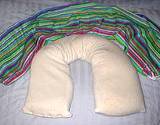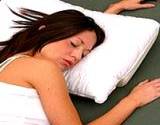|
Grandma's Sleep Disorders Guide
Sleep disorders have many causes:
Hormone imbalances in the brain can also trigger sleeplessness. The pituitary gland plays a key role in the regulation of brain hormones, including melatonin, which is made by the pineal gland and is the main regulator of the sleeping and waking cycles. The three cross sections of the brain
Normally, levels of melatonin rise in the evening, causing drowsiness and a slowed heart rate. However, as people age, melatonin levels diminish and insomnia may result. Modern lifestyle factors, such as too little sunlight exposure during the day and too much artificial light at night, can also suppress melatonin levels and disrupt normal sleep cycles. Natural medicine offers a number of safe and effective remedies to restore healthy sleep patterens.
Natural Sleep Disorders TreatmentNatural Remedies for Sleep Disorders: The first thing to try is; after noon, avoid beverages or foods that contain caffeine. Don't eat just before going to bed, although spirulina or soy nuts are fine because they enhance melatonin production.
Autogenic training, a relaxation method you can teach yourself to do, can help you get to sleep. Stress reduction methods are also important because they increase melatonin levels. A Sleep Diary Keep a sleep diary for a period of 2 weeks to help you and your physician determine the reason for your sleep disorder. Take note of the following:
It's important to notice and write down anything and everything that might be causing your sleep disorders, even when they seem insignificant at the time. Treat yourself well After a difficult or long day: spend the evening relaxing, listen to music, read or take a bath. If you are sedentary during the day, a 30-minute evening walk could prove quite beneficial. Or if you're stuck indoors all day, spend the late afternoon in the sunshine and soak up some sun. Create an ideal environment: Dedicate your sleeping area solely to sleeping. Remove electronic diversions, such as the television, radio or computer. Keep the room temperature about 58 degrees F. and make sure the air is not too dry. Sometimes opening a window and breathing fresh air could be exactly what your body is craving. Sleep on a firm but comfortable mattress, and use natural bedding materials that breathe, such as cotton, silk or feathers. Take a warm bath:
Fragrant Pillows Some people find that fragrant pillows are particularly effective for promoting sound sleep. You can make an herb pillow yourself: Simply fill a small linen bag with valerian root, lavender or lemon-balm and tie it closed. Or you can add a few drops of these same herbal essential oils to a cotton cloth and tuck it under your pillow. Some people prefer to add a few drops on their top sheet and as they pull the sheet up over them they get a puff of the scent. Water-Jet Therapy: This remedy for insomnia and anxiety requires a handheld bath or shower jet. It consists of 2 cold-water jet treatments per leg, a quick 15-second circle across the front. Start with the right leg. Move the water jet from the little toe to the heel then to the back of the knee via the outside of the calf, and then back along the inside of the calf to the heels. Repeat these steps on the other leg. Apply the second treatment from the out edge of the heel via the front of the leg to the knee and back, ending at the big toe. Repeat these steps on the other leg. Soothing Teas: There is a wide array of relaxing and sleep-inducing medicinal herbs. Those most frequently recommended for sleep disorders include; valerian, lemon-balm, hop cones, St. John's wort, chamomile and passionflower. If an individual herb does not have the desired sedative effect, you can purchase a prepared tea mix from a health-food store or prepare you own soothing blend:
Pour 1 cup of boiling water over 1 tablespoon of this blend; steep for 10-15 minutes and strain. Relax and enjoy a cup of this herbal tea by sipping ½ hour before going to bed. Sleep-Promoting Aids Melatonin supplement The melatonin produced in our bodies helps regulate the body's sleeping and waking cycles. Thus, taking melatonin supplements can help alleviate general sleep disorders. Take as directed on the bottle about 20 minutes before bedtime. Do not mix melatonin supplements with other sleeping agents.
The statement's made here have not been approved by the Food and Drug Administration. These statements are not intended to diagnose, treat or cure or prevent any disease. This notice is required by the Federal Food, Drug and Cosmetic Act.
|











 You could also try eliminating noise, light and other factors that might keep you awake.
You could also try eliminating noise, light and other factors that might keep you awake.  Relax with an evening bath: The water should be about 104 degrees F. Add lemon-balm, lavender, hops or valerian extract to the water. These herbs have a soothing effect that promotes drowsiness and will help you sleep.
Relax with an evening bath: The water should be about 104 degrees F. Add lemon-balm, lavender, hops or valerian extract to the water. These herbs have a soothing effect that promotes drowsiness and will help you sleep.
